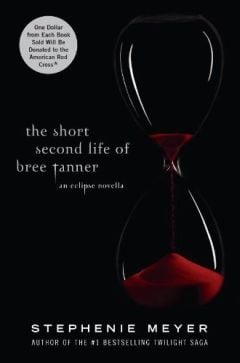Before I started writing this review, I had to go back and read what I wrote for “Why Did I Get Married?” I needed to see what inspired me in the first movie to see if I could cobble together a reasonably positive review for the sequel.
Back then, I called “Why Did I Get Married?” a “good study in relationships”. It was refreshing to see a movie about a group of black upper-middle class married couples that rightly portrayed the positive and negative side of such a union. I saw what problems could occur in a marriage–the infidelity, insecurity, selfishness and secrets. But I also saw a group of beautiful black people in love and working at it. They confronted their issues, came to resolutions and moved on with their lives.
“Why Did I Get Married Too?” reunites the four married couples for their annual retreat, but this time around they replaced the wintry mountains with sandy beaches allowing all of the male stars an opportunity to get chest naked–and I had no complaints about that.
As I settled in to watch the movie, I was excited to see everyone as if I knew them personally. I even imagined that taking such trips, when I get married, with my other married friends would be a sheer delight. But, my excitement and daydreams were halted when I was jolted back into reality by something I had seen before. Not too long into the movie did it occur to me that the characters hadn’t developed, they merely shifted their geographical location and had a slightly different temperament. Without giving too much to away, suffice to say some people remained loud, some remained elusive, some remained insecure and some remained selfish. If you saw the first movie, you can do the math yourself. I was disappointed to see that in two years, nothing was different. Time and experience didn’t change anything with these people except for their hair and their weight. But worse than that, it seemed like the movie relied on drama, amazingly intense bouts of unnecessary drama, and beating the dead horse of the dysfunctional black relationship story.
The drama wasn’t the kind drama that makes you want to yell at the screen and say, “Oh no he didn’t.” It was the kind that makes you squirm in your seat and cover your eyes and mouth. At times, it was just too much to bear. Perry laid the drama on so thick that I think he thought he could very well substitute character development for base relationship drama. We get it, drama sells, but, when it comes to movies portraying black people and their relationships, drama and dysfunction has become the de facto rule that we need to let go of. We can no longer rely on drama to get us by in movies because we are not all drama in real life.
It was hard for me to sit and watch the same sob story being played out. The black man who insists on being defined by whether he has a job or not and taking his frustrations out on his wife. The black man who turns to alcohol when things get rough. The black man who gets brand new things when he lands a hot shot job. The black woman who doesn’t know how to keep her mouth shut and is the source of all problems in her relationship–yet still want to blame the man. The black woman who is so stuck on being strong that she destroys her own relationship. The black woman who carries baggage from old relationships into her new relationships… And the list goes on, but I think I’ve painted a pretty good picture of what one can expect in the sequel. Granted, I know these are problems that not only black women and men in relationships face, they are universal, the problem is, in movies, these seem to always be our problems. We are very one dimensional on the silver screen, all relationships and drama for the sake of entertainment and this time around we were relationships dysfunction magnified with prettier faces. While this may have worked for the first movie or maybe even a completely different movie by someone else, it didn’t work to watch these couples go through the same downward spiral they did the first time. I was uncomfortable with the way the relationship between black men and women was portrayed.
Without Perry’s special eye to detail on how faith impacts people’s lives, his movies become ordinary and uninspiring and actually downright depressing. That is where this movie left me, uninspired and sort of depressed.
It took me a few days to rebound from the way I felt after I saw this movie. It took me a few hours to write this review because I couldn’t believe that after loving so many Tyler Perry movies, I finally lost that loving feeling.
I recall having a full-blown argument with a friend just a few weeks go about Tyler Perry. My friend believes that Perry needs to go beyond his comfort zone and grow out of the black relationship/family dramedies that he is used to. I argued that I believe Perry was meant to be the one who tells those stories and that is the gift that God has given him and he’s using it just fine.
Well, after watching this film, my friend will be happy to know that I am now conceding defeat in our debate and I do believe it is time for Perry to step up and out of his comfort zone.
No more drama Tyler–or at least if you insist on relying on the drama, bring God back to the forefront so at least we can feel a little bit better about what we are watching.


